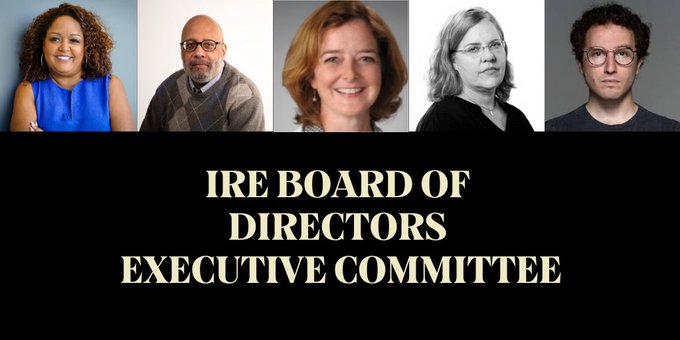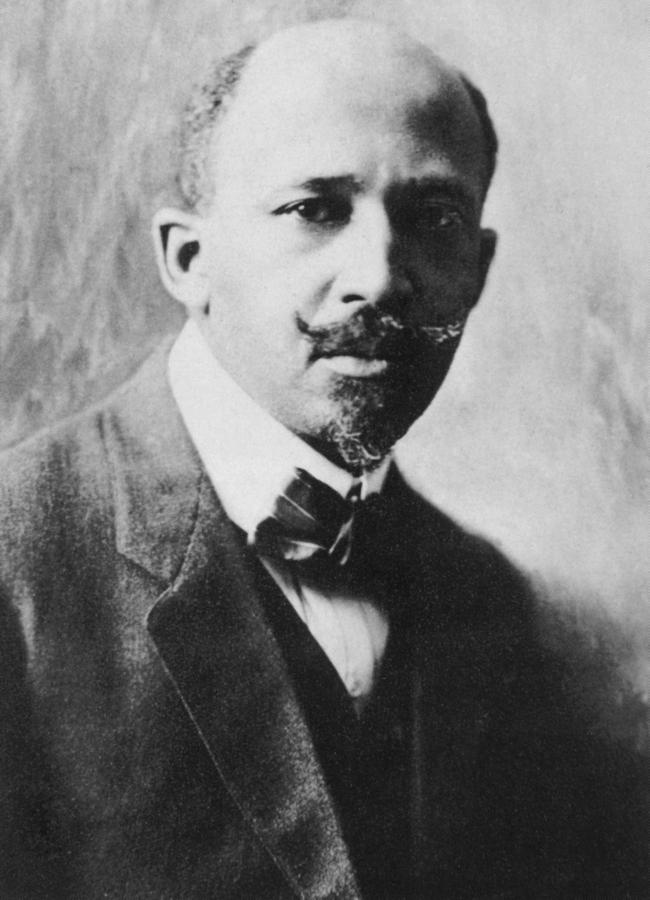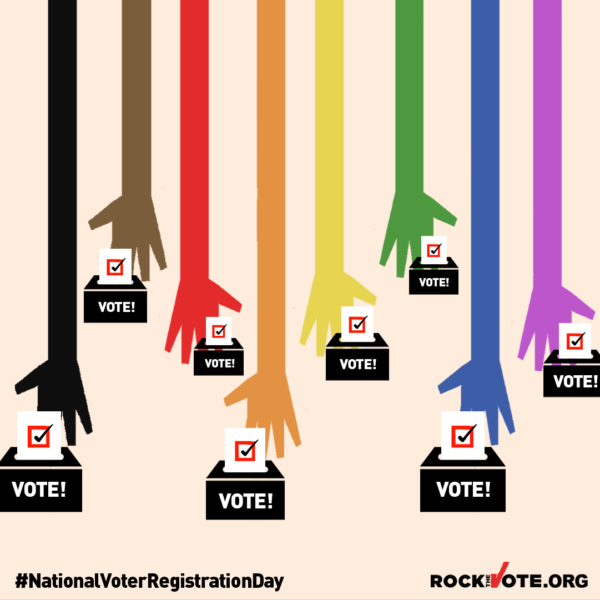Anonymous Group Sees Black Women Betrayed
IRE Board Restores Leadership Diversity
N.Y. Times to Capitalize ‘B’ in ‘Black’

Anonymous Group Sees Black Women Betrayed
Update: Essence issued this statement on Thursday, July 2: “There was no interim CEO at ESSENCE Communications, Inc. (ECI), following the departure of Michelle Ebanks on March 31 until Richelieu Dennis appointed Caroline Wanga to this position on July 1. As owner, Dennis helped to lead the team along with the ECI senior leadership team, but never took on the roles or responsibilities of CEO. So he never stepped down from, resigned from or was replaced in any role.”
Essence Communications responded to scathing allegations of corporate misconduct and sexual misbehavior Tuesday by announcing that it is hiring “law firms and other independent external experts” to review the accusations and installing a new interim CEO to replace owner Richelieu Dennis in that role.
The statement from the publishers of the nation’s leading magazine for black women followed publication on medium.com of an essay by anonymous purported current and former Essence employees. That essay said, “Scores of talented Black women have been either wrongfully laid off or forced to resign from the company in the past two years.
“Essence’s C-suite leadership team strategically tells the market it ‘serves Black women deeply’ under the safe seal of 100% Black ownership, but for the Black women who [make up] over 80% of the company’s workforce, they are systematically suppressed by pay inequity, sexual harassment, corporate bullying, intimidation, colorism and classism. . . .”
The Medium piece specifically called out Dennis and other executives, accusing him of sexual improprieties and adding, “In the [latter] half of 2019, Richelieu tried to force Essence employees and contractors to sign non-disclosure agreements that exclusively [protect] his family from liability or disparagement after a string of wrongful layoffs and other potentially libelous business activity. . . . Richelieu’s wife Martha Dennis is the company’s Head of Human Resources, a blatant conflict of interest.”
The authors, calling themselves “#BlackFemaleAnonymous,” launched a petition on change.org demanding within five business days the “resignation of Richelieu Dennis, Owner & Chief Executive Officer of Essence Ventures (Essence Communications including Essence Magazine, Essence.com and Essence Festival), Michelle Ebanks, Essence Ventures board member and former Essence Communications CEO, Joy Collins Profet, Chief Operating Officer, and MoAna Luu, Chief Content Officer.”
We demand the immediate resignation of @Essence owner & Chief Executive Officer Richelieu Dennis, board members & former CEO Michelle Ebanks, Chief Operating Officer Joy Collins Profet, & Chief Content Officer MoAna Lu. #TakeBackEssence #EssenceFest pic.twitter.com/5RucCSRvGU
— Black Female Anonymous (@takebackessence) June 28, 2020
By Wednesday morning, the petition had exceeded 1,400 signatures and received sympathetic responses on social media that decried the purported behavior of a Black-owned business, with some saying they had heard such allegations over the years.
Essence declared on Monday, “the accusations are false and we fully deny them.”
 The company said Tuesday, “Caroline Wanga (pictured), who joined ESSENCE on June 29 as its new Chief Growth Officer, will step in as interim CEO of Essence Communications, Inc., to work with team leads across the organization and run day-to-day operations, as well as oversee the independent review process.”
The company said Tuesday, “Caroline Wanga (pictured), who joined ESSENCE on June 29 as its new Chief Growth Officer, will step in as interim CEO of Essence Communications, Inc., to work with team leads across the organization and run day-to-day operations, as well as oversee the independent review process.”
Wanga was Target’s chief culture, diversity and inclusion officer and VP of human resources before leaving for Essence in June.
Dennis bought Essence Communications in 2018 from Time Inc.,and formed a black-owned company to return Essence to black ownership.
Dennis is a Liberian-born entrepreneur who sold Sundial Brands, parent company of Shea Moisture and related personal care products, to consumer goods giant Unilever in 2017 for a large but undisclosed sum.

IRE Board Restores Leadership Diversity
Cheryl W. Thompson of NPR was re-elected board president of Investigative Reporters and Editors
Tuesday in a do-over election prompted by the board’s embarrassing election of an all-white executive committee.
Thompson, the first African American president in the history of IRE, founded in 1975, will have an African American vice president, Mark Rochester, editor in chief at Type Investigations, a nonprofit newsroom based in Manhattan.
Thompson, in her sixth year on the IRE board, has been president during the past two years. The board elects its officers, and the choice of Thompson was unanimous. The organization has 5,200 members worldwide.
“I’m thrilled to serve as president for a third term,” Thompson messaged Journal-isms. I’m looking forward to working with this dynamic group of journalists.” And to have Mark Rochester as the vice president means a lot to me. He brings so much to the table. The board is lucky to have him.”
As IRE explained in its announcement of the results, “During a month-long online voting process that concluded June 20, IRE members elected seven candidates to the board, including three Black members, increasing representation to a total of four. In addition, women hold a majority for the second consecutive year on the 13-member board.
“Following the announcement of election results, the newly constituted board elected officers on June 20. The process resulted in an all-white Executive Committee. On June 24, the Executive Committee announced that all five members would resign to pave the way for a new election of officers.”
- Doug Haddix, Investigative Reporters and Editors: IRE offers free resources to investigate police abuses and misconduct
N.Y. Times to Capitalize ‘B’ in ‘Black’
June 30, 2020
‘White,’ ‘Brown’ to Remain Lowercase
What the N.Y. Times Said in 1930 About ‘Negro’

‘White,’ ‘Brown’ to Remain Lowercase
The New York Times Tuesday announced that it will join the growing list of news organizations capitalizing the “B” in “black” to describe “people and cultures of African origin, both in the United States and elsewhere.”
It will not capitalize “white” or “brown” in discussing races of people, and all of the terms will be used as adjectives, not nouns, when referring to human groupings.
The Times decision is especially significant because the Times’ 1930 bow to demands to capitalize “Negro” is viewed as a milestone in African Americans’ attempts to empower themselves through language.
The note to employees from Executive Editor Dean Baquet and Phil Corbett, associate managing editor for standards, said, “We have talked to more than 100 staff members to get their views, reviewed the arguments that have been made over many years, and consulted with colleagues at other news organizations. The feedback has been thoughtful and nuanced, with a wide range of opinions among colleagues of all backgrounds.”
In an Apple longform podcast posted Friday, Baquet described the newsroom discussion on capitalization as a “fierce debate” with not all younger black staffers agreeing that the word should be capitalized.
 National Editor Marc Lacey (pictured) who led that discussion, messaged Journal-isms on Tuesday, “There were many conversations over this and many views, and most people in the newsroom who I spoke to supported it, especially Black journalists. But not everybody thought it was an essential style change and some people expressed discomfort with having a different style for Black and white.”
National Editor Marc Lacey (pictured) who led that discussion, messaged Journal-isms on Tuesday, “There were many conversations over this and many views, and most people in the newsroom who I spoke to supported it, especially Black journalists. But not everybody thought it was an essential style change and some people expressed discomfort with having a different style for Black and white.”
The final decision, according to Baquet’s and Corbett’s memo, was that, “We believe this style best conveys elements of shared history and identity, and reflects our goal to be respectful of all the people and communities we cover.”
The style change does not affect its use of the hyphen in “African-American,” though that term’s 1980s proponents intended not to have one and the Associated Press acceded to that last year after three decades.
“The change will match what many readers are seeing elsewhere. The Associated Press and other major news organizations have recently adopted ‘Black,’ which has long been favored by many African-American publications and other outlets. The new style is also consistent with our treatment of many other racial and ethnic terms: We recently decided to capitalize ‘Native’ and ‘Indigenous,’ while other ethnic terms like ‘Asian-American’ and ‘Latino’ have always been capitalized.
“We will retain lowercase treatment for ‘white.’ While there is an obvious question of parallelism, there has been no comparable movement toward widespread adoption of a new style for ‘white,’ and there is less of a sense that ‘white’ describes a shared culture and history. Moreover, hate groups and white supremacists have long favored the uppercase style, which in itself is reason to avoid it.
 “The term ‘brown’ as a racial or ethnic description should also generally remain lowercase and should be used with care. ‘Brown’ has been used to describe such a disparate range of people — Latin, Indigenous, Asian, Middle Eastern — that the meaning is often unclear to readers. A more specific description is generally best.
“The term ‘brown’ as a racial or ethnic description should also generally remain lowercase and should be used with care. ‘Brown’ has been used to describe such a disparate range of people — Latin, Indigenous, Asian, Middle Eastern — that the meaning is often unclear to readers. A more specific description is generally best.
“The change to ‘Black’ is effective immediately; relevant stylebook entries will be revised in the coming days. Here are a few additional points to keep in mind:
“Both ‘Black’ and ‘white’ should normally be used as adjectives, not nouns.
“ ‘African-American’ remains an acceptable alternative for Black people in the United States; we should generally choose the term that the subject favors.
“Under our longstanding guidelines, we should include references to a person’s race or ethnicity only when it is pertinent and the pertinence is clear to readers.
“Take care to avoid implying that ‘white’ is the default (for example, by noting the race of a Black person in a story but not specifying the race of others). And avoid implying that any racial or ethnic group is monolithic in its outlook or views.
“Thanks to all the staff members who shared thoughtful, nuanced views on this complex subject, and to Mike Abrams, who helped guide our discussions and thinking.”
- Jon Allsop, Columbia Journalism Review: Dean Baquet, Marty Baron, and protecting the institution
- Kristen Hare, Poynter Institute: Many newsrooms are now capitalizing the B in Black. Here are some of the people who made that happen
What the N.Y. Times Said in 1930 About ‘Negro’
Historian David Levering Lewis wrote in his 2000 biography, “W.E.B. Du Bois (pictured): The Fight for Equality and the American Century, 1919-1963″:
 “As recently as November 1925, The New York Times had once again rejected his plea to capitalize Negro. Denial of upper-case existence in the newspaper of record merely affirmed symbolically the literal denial of the humanity of an entire race — token diminution that both reflected and sustained the cruelest beliefs and actions in the real world. The policy of the Times suited an era in which thirty-four ‘negroes’ were to be lynched in 1926. . . .”
“As recently as November 1925, The New York Times had once again rejected his plea to capitalize Negro. Denial of upper-case existence in the newspaper of record merely affirmed symbolically the literal denial of the humanity of an entire race — token diminution that both reflected and sustained the cruelest beliefs and actions in the real world. The policy of the Times suited an era in which thirty-four ‘negroes’ were to be lynched in 1926. . . .”
The Times editorialized on March 7, 1930:
“NEGRO” WITH A CAPITAL “N”
The tendency in typography is generally toward a lessened use of capital letters. Yet reverence for things held sacred by many, a regard for the fundamental law of the land, a respect for the offices of men in high authority, and certain popular and social traditions have resisted this tendency.
Races have their capitalized distinction, as have nationalities, sects and cults, tribes and clans. It therefore seems reasonable that a people who had once a proud designation, such as Ethiopians, reaching back into the dawn of history, having come up out of the slavery to which men of English speech subjected them, should now have such recognition as the lifting of the name from the lower case into the upper can give them.
Major ROBERT R. MOTON of Tuskegee, the foremost representative of the race in America, has written to THE TIMES that his people universally wish to see the word “Negro” capitalized. It is a little thing mechanically to grant, but it is not a small thing in its implications. Every use of the capital “N” becomes a tribute to millions who have risen from a low estate into “the brotherhood of the races.”
THE NEW YORK TIMES now joins many of the leading Southern newspapers as well as most of the Northern in according this recognition. In our “style book” “Negro” is now added to the list of words to be capitalized. It is not merely a typographical change; it is an act in recognition of racial self-respect for those who have been for generations in “the lower case.”

Rock the Vote, a nonpartisan organization that is working with businesses and influencers, has asked Journal-isms to help publicize its National Voter Registration Day, to take place Sept. 22.
Facebook users: “Like” “Richard Prince’s Journal-isms” on Facebook.
Follow Richard Prince on Twitter @princeeditor
Richard Prince’s Journal-isms originates from Washington. It began in print before most of us knew what the internet was, and it would like to be referred to as a “column.” Any views expressed in the column are those of the person or organization quoted and not those of any other entity. Send tips, comments and concerns to Richard Prince at journal-isms-owner@yahoogroups.com
View previous columns (after Feb. 13, 2016).
- Diversity’s Greatest Hits, 2018 (Jan. 4, 2019)
- Book Notes: Is Taking a Knee Really All That? (Dec. 20, 2018)
- Book Notes: Challenging ’45’ and Proudly Telling the Story (Dec. 18, 2018)
- Book Notes: Get Down With the Legends! (Dec. 11, 2018)
- Journalist Richard Prince w/Joe Madison (Sirius XM, April 18, 2018) (podcast)
- Richard Prince (journalist) (Wikipedia entry)
- February 2018 Podcast: Richard “Dick” Prince on the need for newsroom diversity (Gabriel Greschler, Student Press Law Center, Feb. 26, 2018)
- Diversity’s Greatest Hits, 2017 — Where Will They Take Us in the Year Ahead?
- Book Notes: Best Sellers, Uncovered Treasures, Overlooked History (Dec. 19, 2017)
- An advocate for diversity in the media is still pressing for representation, (Courtland Milloy, Washington Post, Nov. 28, 2017)
- Morgan Global Journalism Review: Journal-isms Journeys On (Aug. 31, 2017)
- Diversity’s Greatest Hits, 2016
- Book Notes: 16 Writers Dish About ‘Chelle,’ the First Lady
- Book Notes: From Coretta to Barack, and in Search of the Godfather
- Journal-isms’ Richard Prince Wants Your Ideas (FishbowlDC, Feb. 26, 2016)
- “JOURNAL-ISMS” IS LATEST TO BEAR BRUNT OF INDUSTRY’S ECONOMIC WOES (Feb. 19, 2016)
- Richard Prince with Charlayne Hunter-Gault,“PBS NewsHour,” “What stagnant diversity means for America’s newsrooms” (Dec. 15, 2015)
- Book Notes: Journalists Follow Their Passions
- Book Notes: Journalists Who Rocked Their World
- Book Notes: Hands Up! Read This!
- Book Notes: New Cosby Bio Looks Like a Best-Seller
- Journo-diversity advocate turns attention to Ezra Klein project (Erik Wemple, Washington Post, March 5, 2014)

